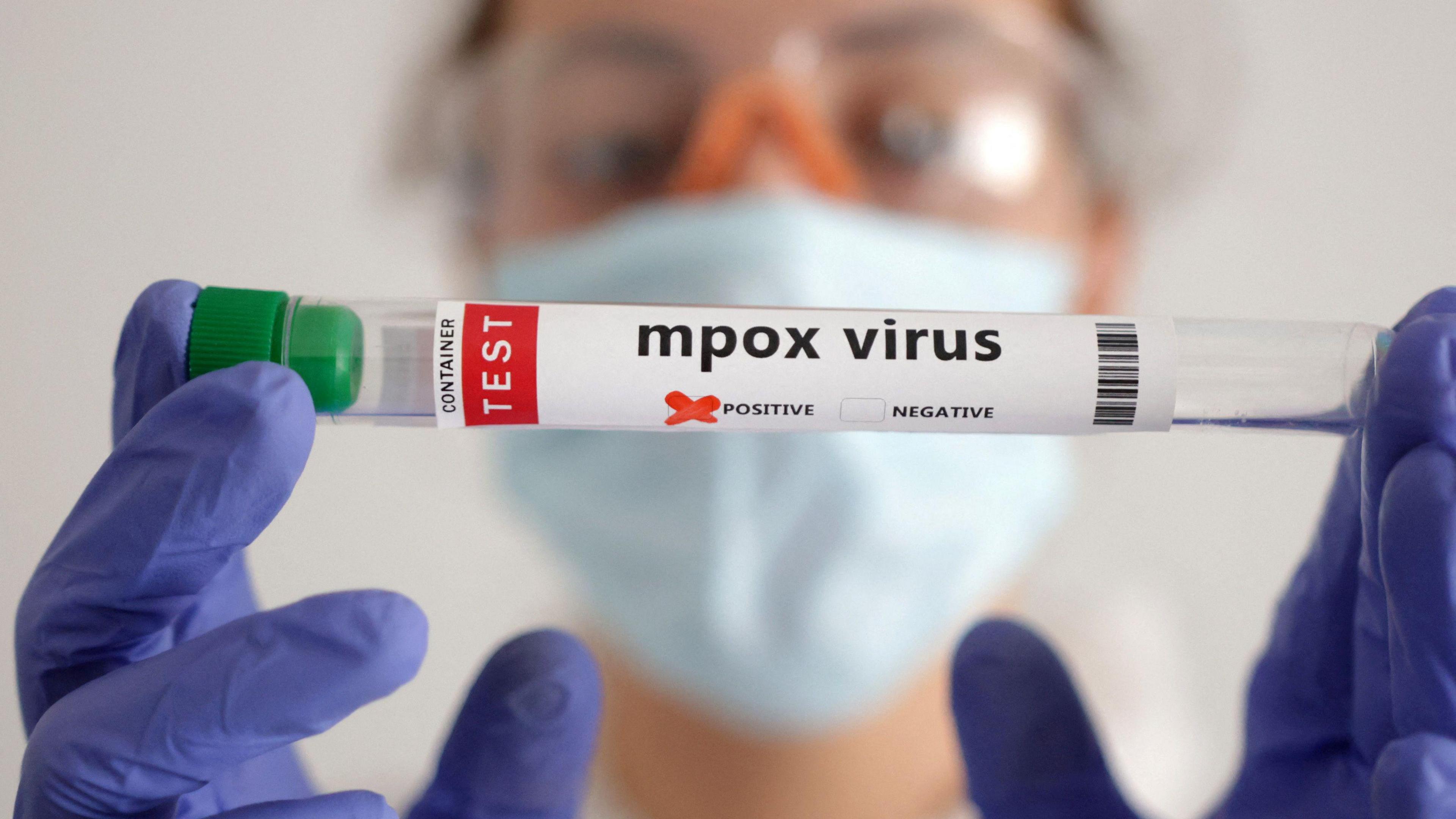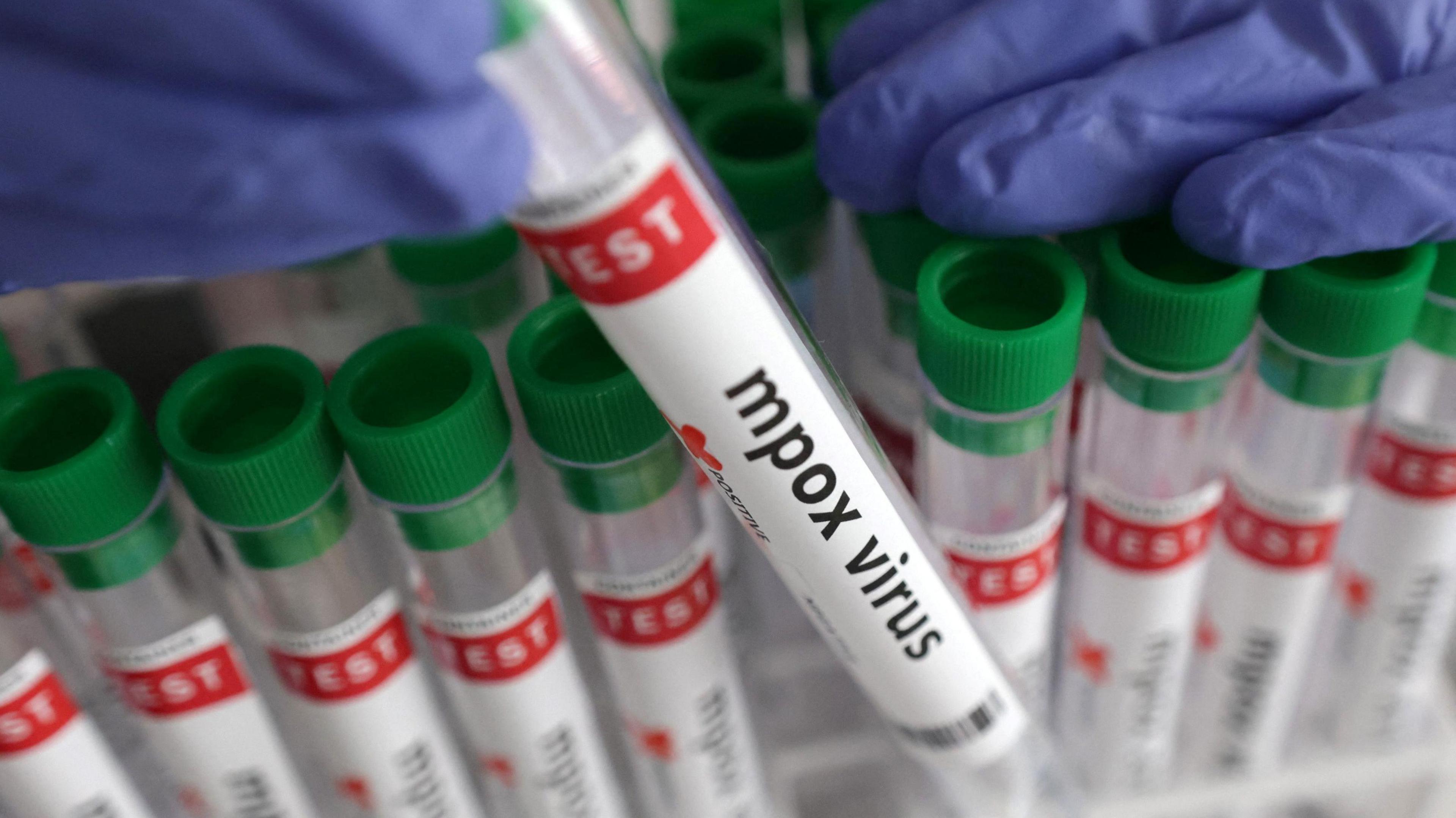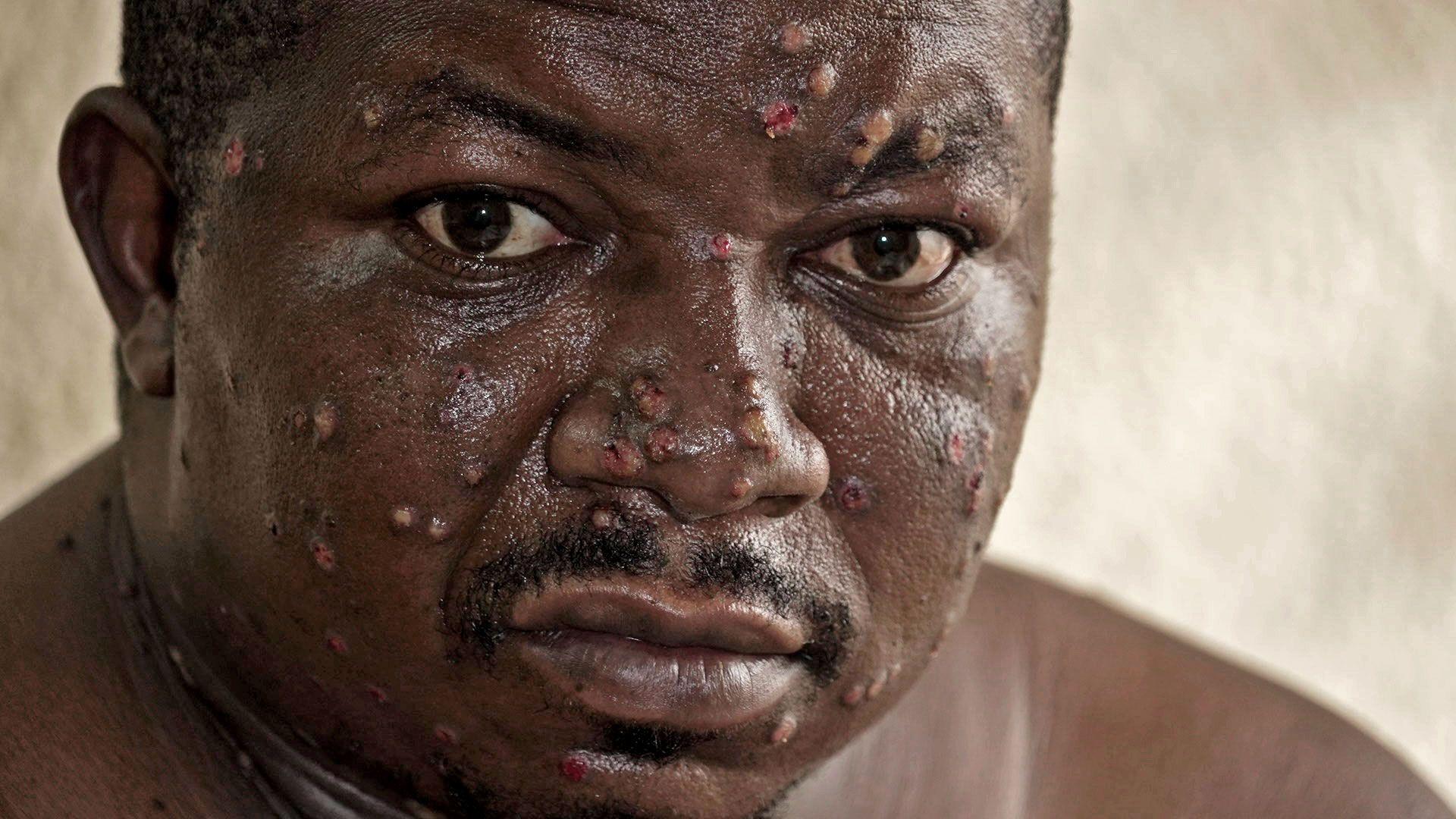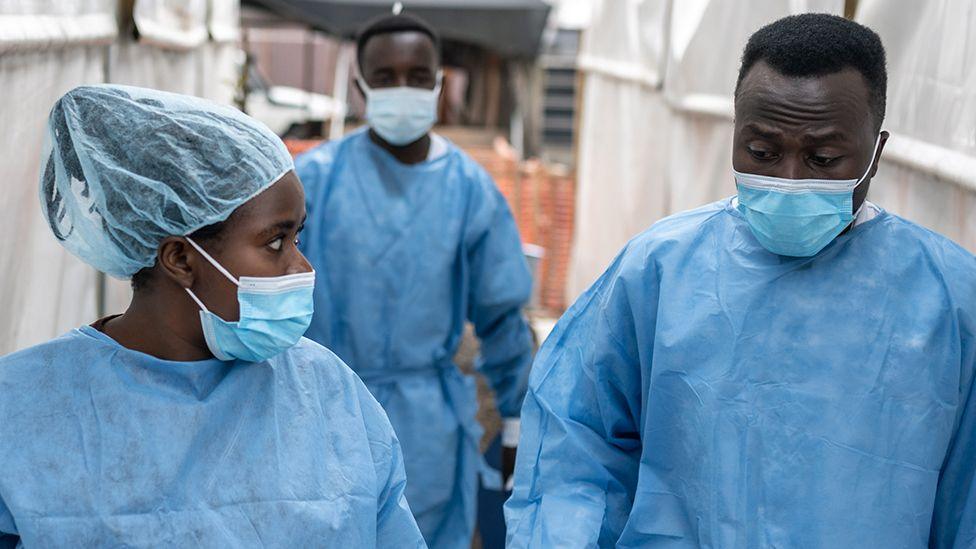Mpox risk low in bailiwick - health chiefs

Guernsey's public health director said the global outbreak was being closely monitored
- Published
The risk of mpox in the Bailiwick of Guernsey is currently "very low", but health bosses will keep a "watching brief" of the situation.
Director of Public Health Dr Nicola Brink said a meeting had been held by a multi-disciplinary group with representatives from Guernsey, Alderney and Sark to consider the risks of the disease, previously known as monkeypox.
The World Health Organization (WHO) declared a public health emergency of international concern after mpox cases rose in several countries following an outbreak in the Democratic Republic of Congo (DRC).
Dr Brink said the group would meet again in a few weeks' time or earlier if necessary to review the outbreak again.
Dr Brink said: "The evidence we examined indicates that the risk to the Bailiwick is currently very low.
"Our plan is therefore to keep a watching brief and monitor the situation closely while ensuring that we are prepared should we need to manage a case of mpox."
According to WHO, more than 15,000 clinically compatible cases of mpox - which is transmitted from animals to humans - have been detected in DRC in 2024, with 537 deaths detected up to 14 August, external.
The virus can spread between humans through contact with bodily fluids, skin-to-skin contact or talking or breathing near other people.
Follow BBC Guernsey on X (formerly Twitter), external and Facebook, external. Send your story ideas to channel.islands@bbc.co.uk, external.
Related internet links
- Published21 August 2024

- Published24 August 2024

- Published22 August 2024
